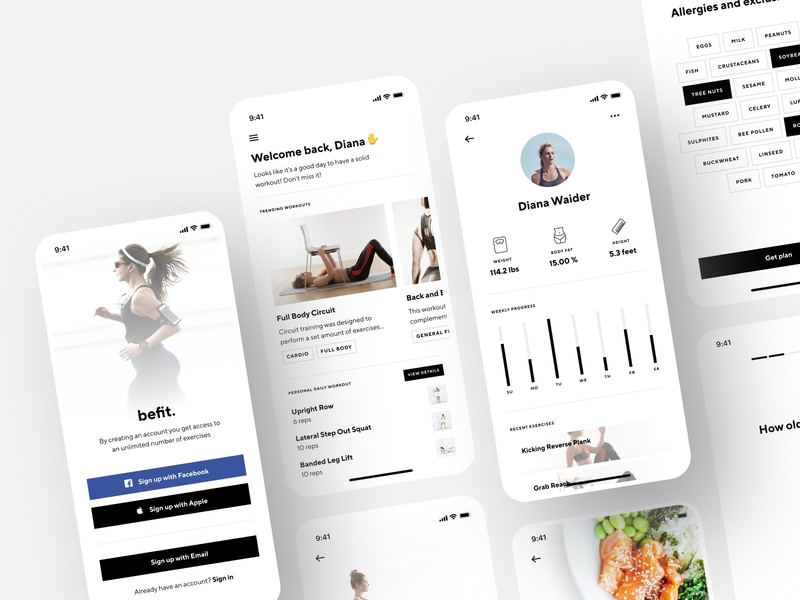In today’s digital age, the shift towards mobile devices is more pronounced than ever. With consumers increasingly relying on smartphones and tablets for their everyday tasks, businesses must adapt to this changing landscape. A mobile-first strategy is no longer just a trend; it is essential for staying competitive. At the heart of this strategy lies app development, which plays a critical role in enhancing user experience, engagement, and overall business performance. Here are several key reasons why app development is vital for building a mobile-first strategy.

Table of Contents
Toggle1. Enhanced User Experience
Mobile apps are designed specifically for smaller screens, allowing for a more optimized user experience compared to mobile websites. Apps offer faster load times, intuitive navigation, and seamless performance, providing users with a more enjoyable and efficient way to interact with a brand. A well-developed app can minimize frustrations associated with mobile browsing, ensuring that customers stay engaged and satisfied.
2. Increased Accessibility
Apps provide users with 24/7 access to your products or services, allowing them to interact with your brand anytime and anywhere. Unlike websites that may require an internet connection, apps can function offline or with limited connectivity, ensuring that users can access essential features without interruptions. This constant accessibility is crucial for businesses aiming to meet the demands of on-the-go consumers.
3. Stronger Brand Presence
A dedicated mobile app helps reinforce brand identity and visibility. By having a presence in app stores, businesses can reach a broader audience and enhance brand recognition. Apps allow companies to showcase their unique features, values, and offerings, creating a lasting impression on users. Furthermore, consistent branding throughout the app fosters familiarity, encouraging customer loyalty.
4. Personalized User Experiences
Mobile apps enable businesses to deliver personalized experiences based on user behavior and preferences. By utilizing data analytics, companies can tailor content, product recommendations, and promotions to individual users. This level of personalization not only enhances user satisfaction but also drives engagement and conversion rates, making customers feel valued and understood.
5. Improved Customer Engagement
Apps provide businesses with direct communication channels to engage customers. Features such as push notifications, in-app messaging, and social sharing facilitate real-time interactions, allowing companies to keep users informed about new products, updates, and promotions. This level of engagement fosters a sense of connection between the brand and its customers, leading to higher retention rates.
6. Data Collection and Insights
App development enables businesses to collect valuable user data, offering insights into customer behavior, preferences, and trends. This data can inform marketing strategies, product development, and overall business decisions. By understanding how users interact with the app, companies can identify areas for improvement, optimize user experiences, and tailor offerings to meet customer needs.
7. Competitive Advantage
As more businesses embrace mobile-first strategies, having a dedicated app can set you apart from competitors. An app not only enhances user experience but also demonstrates a commitment to innovation and customer-centricity. Companies that invest in app development are better positioned to capture market share and attract tech-savvy consumers who prioritize convenience and accessibility.
8. Monetization Opportunities
Apps provide various monetization options, including in-app purchases, subscription models, and advertisements. By offering premium features or exclusive content, businesses can generate additional revenue streams. This flexibility allows companies to experiment with different monetization strategies and find the best fit for their target audience.
9. Integration with Other Technologies
Mobile apps can easily integrate with other technologies, such as the Internet of Things (IoT), artificial intelligence (AI), and augmented reality (AR). These integrations can enhance the functionality of the app, providing users with innovative experiences that cater to their needs. As technology continues to evolve, having a mobile app allows businesses to stay ahead of the curve and leverage new opportunities.
Conclusion
In a world where mobile devices dominate consumer behavior, app development is a crucial element of a successful mobile-first strategy. By enhancing user experience, increasing accessibility, and providing personalized interactions, businesses can strengthen their brand presence and foster customer loyalty. As companies continue to navigate the digital landscape, investing in app development will not only meet the demands of modern consumers but also drive growth and innovation in an increasingly mobile-driven world.


No responses yet